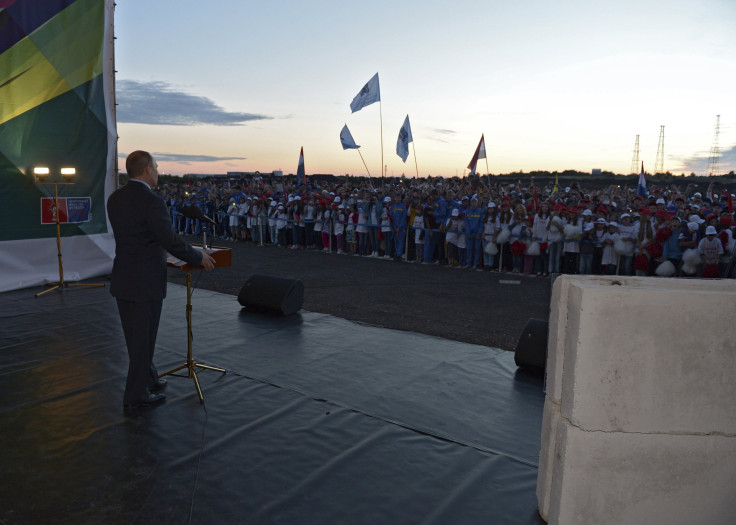MH17 And The Russian Media: Why The Kremlin’s Propaganda Machine Is So Effective

One of the more outrageous conspiracy theories about the disappearance of Malaysia Airlines Flight 370 surfaced in the days following the destruction of Malaysia Airlines Flight 17 last week. The theory, which originated in Russia, holds that MH17 and MH370 are actually the same plane, and the U.S. military arranged for the second flight, filled with corpses, to be blown up over eastern Ukraine.
This theory was described in a widely read account in the New Republic Sunday by Russian-American Jessica Ioffe, which argued Russian civilians are being fed a uniformly skewed interpretation of the events that brought down the Malaysian airliner, killing 298 passengers and crew. While the sensational theory does not appear to be circulating among the more legitimate news outlets in Russia, Russian television stations have reportedly been promoting a narrative that Ukraine and, to a lesser extent, the United States -- but definitely not Russia -- are responsible for the air disaster.
Russian President Vladmir Putin’s statement Sunday, which said the tragedy "could have been avoided if military operations had not resumed in eastern Ukraine,” reinforced the message that Russians are not to blame. Meanwhile, U.S. military intelligence specialists remain firm in their assessment a Russian-made missile brought down the aircraft.
“As the crisis surrounding the plane crash deepens and as calls for Vladimir Putin to act grow louder, it’s worth noting that they’re not really getting through to Putin’s subjects,” Ioffe wrote. “The picture of the catastrophe that the Russian people are seeing on their television screens is very different from that on screens in much of the rest of the world.”
Even with the understanding that most Russian television stations are controlled by the Kremlin, it can be difficult to fathom the type of media landscape described by articles like Ioffe’s. In the United States, conspiracy theories typically run in opposition to the mainstream message (such as, the Twin Towers were destroyed by bombs, not planes). In Russia, it seems, the most extreme conspiracy theories about MH17 don’t contradict the party line as much as they embellish the state-sanctioned message that Russia is either innocent or an intended victim (Russian news outlets have suggested Putin himself may have been the target). As Ioffe noted, the conspiracy theories “have become a kind of symbiotic feedback loop between state TV and the most inventive corners of the Internet,” like News2.ru, which resembles Reddit.
When asked why more Russians don’t have or seek access to counter-narratives, Susan Vdovichenko, a professor of Russian language, literature and culture at Washington & Jefferson College, said government brainwashing is only part of the story.
“People believe the Russian spin in one sense because there isn’t any counter to it, but in another sense it’s because they want to believe that we’re back in an era of superpowers and Russia is one of those superpowers,” Vdovichenko said. “The government is in some senses brainwashing, but they’re not tying Russians' hands behind their back saying, ‘You must believe this.’ Russians want to believe it."
During seven decades of Soviet rule, tens of thousands of Russians -- particularly in the cities -- found ways to circulate information that was not approved by or was at odds with the stories being fed to them by the government press operation. It's unlikely that in this crisis, all Russians are unskeptically buying the Kremlin's line.
“The more we insist on it, the less likely the Russians are to agree,” Ioffe wrote.
Vdovichenko, who has lived in Ukraine and whose in-laws now live there, said she has seen friendships between Ukrainians and Russians torn apart by a mutual belief the other is being fed propaganda.
“[The Ukranian] will say, ‘Why aren’t you paying attention to the media?’ And [the Russian] will say, ‘Why aren’t you paying attention to the media? How can you be so stupid as to believe the American version of things?'”
© Copyright IBTimes 2024. All rights reserved.






















